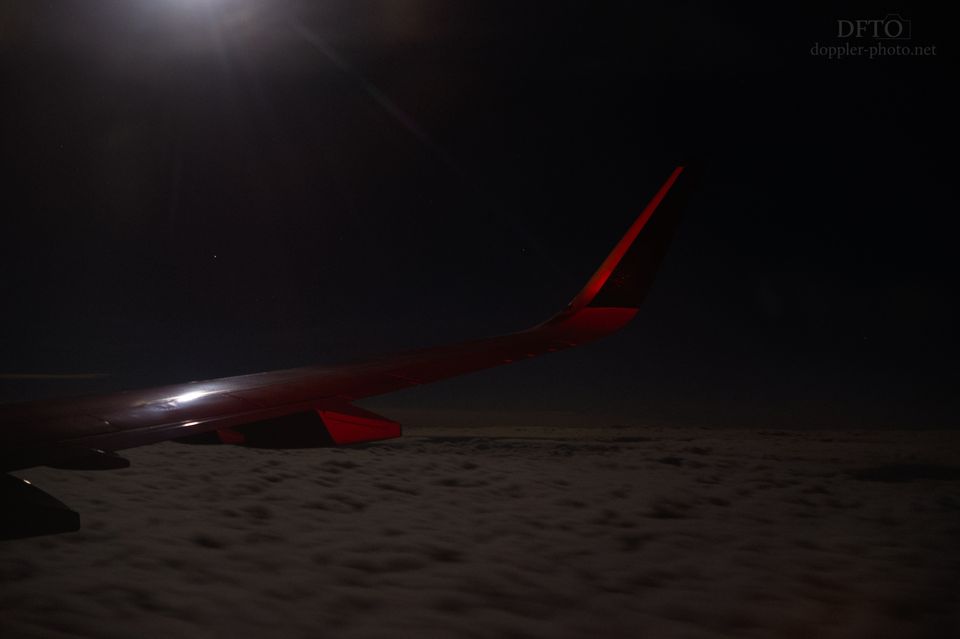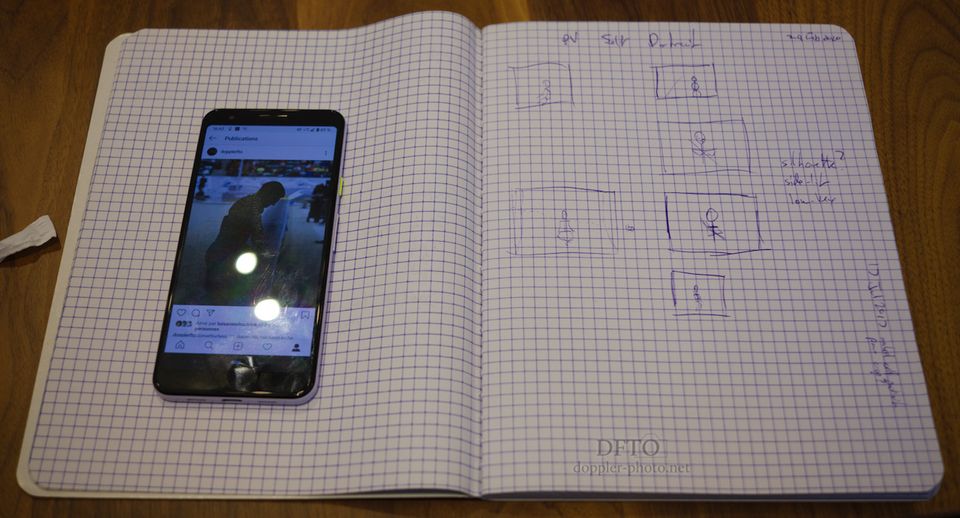
"To me, the sounds of a wok are very… very homey? They may or may not be pleasant, objectively… But the sound of, like, when the steel hits steel? Like, when you're moving things around… And you know, when you bang on it sometimes to get things off the spatula?
"It all just goes with the… kind of the spirit of the wok, y'know?"
Some things are difficult to put into words. And in the times I've been fortunate enough to watch my friend Annie cook, what's stood out for me have been the clarity of her intentions, the creativity of her choices, the pride in her craft, and other traits that speak of the soul of cooking, in a way that words don't always reach.

Annie's cooking style feels like a combination of old and new, traditional and experimental. For her, the experimentation mainly happens with the ingredients. In contrast, she says "I think the techniques that you would cook with in a wok are traditional… I don't deviate from those techniques." The statement carries the firmness of a deeply-held conviction. And the sometimes-arbitrary-seeming juxtaposition of rigidity and flexibility feels so familiar for me, and so reminiscent of a thousand different immigrant stories.
I once noticed that same sense of familiarity in Miles Morales' connection with his family in "Spider-Man: Into the Spiderverse." I wrote, "It's so much tension, and so much love. It's the simultaneous excitement and guilt of standing on a foundation that your parents built, while reaching for something else. It's the bitter-sweet of trying to appreciate and accept the gifts that they offered, but trying to reject them in the same moment."
It can be difficult to let your roots anchor you, without also letting them hold you back. And a lot of times, it can look like an arbitrary compromise when someone finds a balance that feels right.

Personally, I admire Annie's balance of those two forces in her own cooking style. I remembered thinking that some steps of her cooking process felt more like a ritual, and as she recounted the steps later on, it renewed that sense.
"The techniques are so inherently… Chinese. I always get the wok really nice and hot. And then I always put the oil in. And then I'll swirl the oil... you know, there's a long yau [烺油/滑鍋] process of doing that. And then I throw things in there to cook at a high heat, you know, with a fair amount of movement inside the wok…
Rituals always embody some connection to the past. They incorporate lessons learned over years and decades and generations. My sense was that Annie's cooking rituals connected her to her own heritage, in a way, even though she describes herself as someone who isn't particularly sentimental.

She learned to use a wok from her mom, and even before that, it was an ever-present part of her life growing up. So when she discovered a disused wok in her friend's kitchen, she "borrowed" it. That was twelve years ago.
"It was my friend's wok, and he just didn't use it enough, so I reappropriated it? … It is a carbon steel wok, it feels very solid, it feels good, and it also reminds me of the wok that my family had growing up, which is also a carbon steel wok with these, like, loop handles..."

That connection to her family continued with the only picture in her kitchen. It felt somewhat symbolic to me, that the person who had taught Annie to use a wok would be watching over as she cooked. But her explanation was a little different:
"It's more, like, intuitive. Like, I just like it there? I think when my brother gave it to me, it may have been in [this] kitchen? He gave it to me, actually, last Christmas... He might have brought it over and we had a meal together, after going and foraging for mushrooms the day before…
"I'm not really, like, a pictures-of-people type of person… but I really like having that one there... It feels nice when I look at it."
But if we're talking symbolism, it feels like Annie's casual mention of mushroom foraging epitomizes just how easily she blends her own style and flair with the heritage that grounds it.

Mushrooms themselves are pretty common in Chinese cuisine, but Annie's particular interest in them goes beyond that. With a laugh, she confirmed, "Yeah, I really like mushrooms."
For a few years, she's delved into mycology, learning how to positively identify all variety of mushrooms, and has gone on a number of group foraging excursions to practice and hone those skills. And back at home, her cuisine tends to incorporate them in a whole host of different forms. In a list that's clearly incomplete, she rattles off dried mushrooms, mushroom powder, mushroom hot cocoa, sliced cremini mushrooms and pesto pasta…
"If there are things I can get mushrooms into, then they usually make it in there."
I got a better sense of how she uses them after asking what she would substitute, if forced to.
"Depends on the mushroom… I was using those king oyster mushrooms for body and bite and… texture. But I also use mushrooms mainly for, like, flavor? Like, shiitake mushrooms for flavor. I use, like, a mushroom powder for flavor…
"If I didn't have mushrooms on hand… Maybe tofu… but that doesn't really add much. Like, mushrooms are umami. So it's really different. What else would I use for umami…? I mean, y'know, like, you get a good sear on something, and you add those flavor components…"
The conversation turns to the Maillard reaction, and then the idea of searing cabbage comes to mind as her exploration continues.
"Depending on what the dish was, maybe even, like, potatoes? I've been roasting potatoes and that's got a really, really satisfying, like, crispy exterior, like crunchy, crispy exterior and like, soft, pillowy interior. Yeah… tomatoes? Tomato paste can also bring a lot of flavor, especially if you fry it up… And then you can add other elements, like, whatever protein you wanna use…"

The original juxtaposition comes back to mind.
"Sometimes I'm experimenting with dishes, and it feels more, like, experimenting, or exploring. And it's a little bit more exciting, like, 'Oh, what am I gonna get?!'. And when I'm cooking dishes that I'm really familiar with, there's like a… there's like, a comfort? And maybe that's when it's a little bit more ritualistic…"
Annie mentioned that an exploration that she particularly enjoys is using food to connect with other people's food culture.
"I love, also, making food that… that is special to other people, and familiar to other people, and maybe not so familiar to me. And sometimes I do a good job of it, and that's a good feeling. And sometimes, y'know, it's not very… authentic or reminiscent for them at all. And that's okay, but, y'know… it's still fun to try… 'cause it gets me in a different mindset, of different staples than I would use."

The idea of cultural fusion, whether in food… language… style of dress… it's always incredibly personal. For reasons that are difficult to explain, certain combinations feel perfectly fine, while others feel almost sacrilegious. Some rules feel inherently intuitive, and others feel daft and overbearing. That is the nature, I think, of trying to join something novel and unfamiliar with something else that lives close to your heart.
What I've come to appreciate about Annie's approach is how much joy she takes in her cooking explorations, and how eager she is to find unfamiliar cooking traditions that she can learn from and incorporate into her own style. How she manages to keep her kitchen filled with the traditions and heritage that she comes from, but in the same moment, mix them with other ideas that those ancestors might have never imagined.
Towards the tail end of a brief explanation on wok cooking, Annie had emphasized that a wok is "an implement… it's a tool…" And I think it's easy to see the spirit of the wok as the heritage and traditions that the tool calls forth and embodies.
But her approach reminds me that another element of that spirit might be the ability to use it as a tool to connect with other people. An implement that calls forth something near to your heart, and something near to theirs, and that helps to fuse those into something that can feel dear to everyone involved.




![[Doc Diaries] The Big Leagues](/content/images/size/w960/migrated_images/2021/04/doc-diaries-big-leagues/710_3349.jpg)
